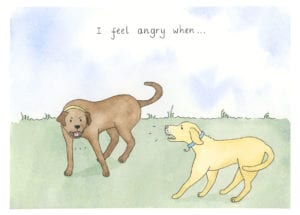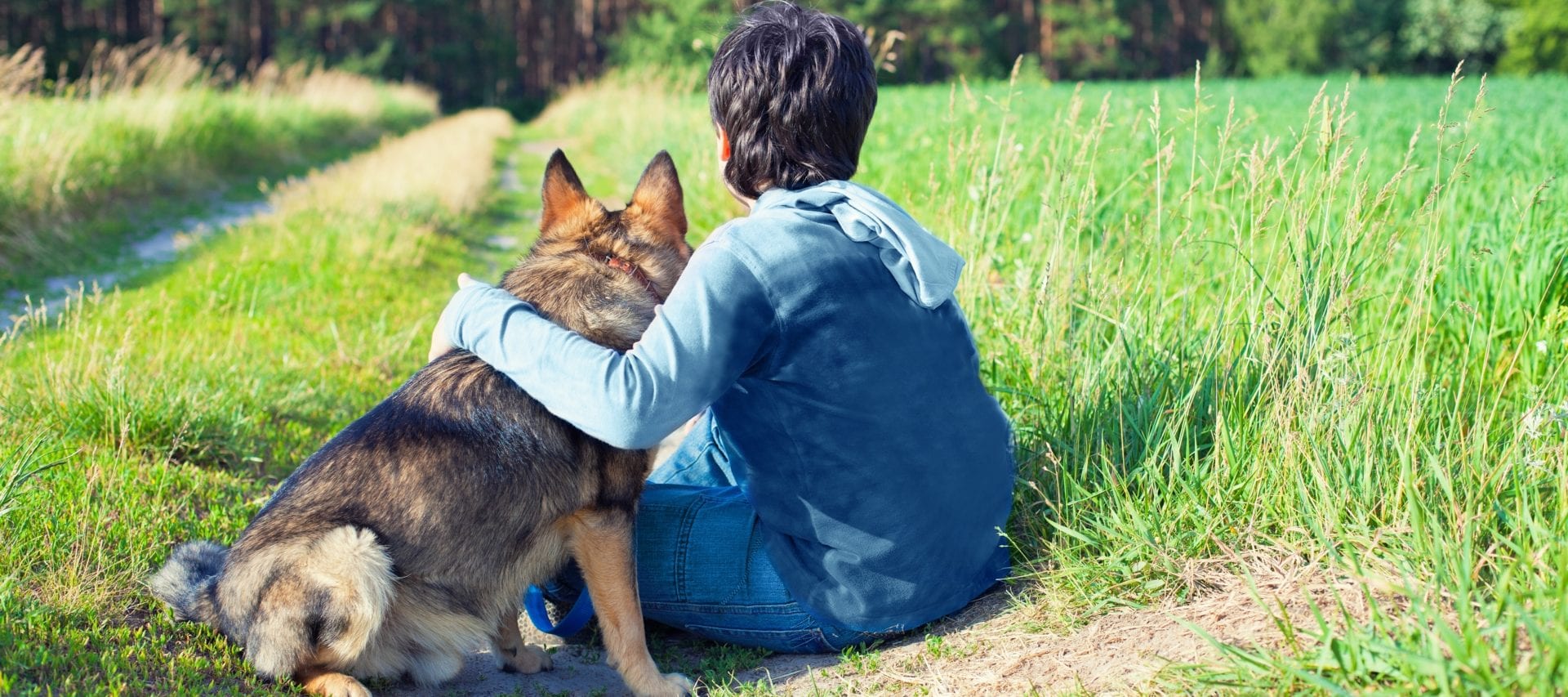Anger Awareness Week 2020 is from the 1st – 7th December 2020. This year the focus has been on passive aggressive anger sufferers, helping them identify their anger issues and highlighting the treatment they need.
Anger can be an all consuming emotion that many people and children live with on a daily basis without recognising that it is there and affects every element of their daily lives. It can cause a ripple effect and escalate easily into many other behaviours. Managed with help and support however, it can be understood and contained and even dissipated completely.
We thought this a great opportunity to share how our incredible teams help young people manage their anger on a daily basis.
The connection between a child and a dog promotes a calm, non-judgemental environment where the child feels safe and relaxed. Through our specialist emotional regulation programme we are able to help children identify different emotions, help them understand the level of that emotion, what their reactions are and put lifelong strategies in place to help manage these emotions.
Here are a few examples:
Alex would escalate from 0-100 in seconds. He would go from being at his baseline to shouting, swearing and throwing things around the classroom. Each time this happened it would end in him being incredibly upset and self deprecating often leading to self harm. Alex was initially reluctant to start the programme however once he began, he loved the calm his sessions offered him and he welcomed the escape. Over time Alex was able to recognise what his triggers were and how his body and mind felt. As his emotions started to change and escalate, he was then able to start implementing strategies to help him manage these emotions, meaning that over time the outburst reduced and he was then able to verbalise his emotions talking through how he felt and in turn the upset and self deprecation reduced.

Fiona was very withdrawn, she did not engage with her peers positively and her responses were always short and sharp. Fiona would antagonise peers, put them down and say unkind things to them; she was continually spoken to by teachers about her unkind and bullying behaviour. Fiona’s behaviour was similar at home with her carers although could often be more violent. Fiona had a very complex life and was deeply sad and angry with everything and everybody. She did not have any positive relationships in her life until she met Indi, her school dog. Indi brought some joy into her life and she was able to show him empathy and kindness. With the help of Indi and his practitioners, they started to look at how to build positive relationships with peers and understand and manage her anger and frustration. Fiona still sees Indi weekly and she is now able to reflect on what has gone well, not so well and look at what she can change next time. The change her teachers and carers have seen has been incredible.
Our teams transform the lives of children daily by helping them understand their emotions and put strategies in palace to manage them, if you would like to find out more please contact us at info@canineassistedlearning.com

